Disclaimer: This post may contain affiliate links, meaning we get a small commission if you make a purchase through our link at no extra cost to you. For more information, please visit our Disclaimer Page.
The best self help books for introverts have the power to change your life. These books can open a world of opportunities to you.
They’re here to motivate and inspire you. And they’re more than just motivational. They take a more thorough approach that helps you find yourself in the process.
Being an introvert can be tough sometimes.
In this article, we are going to talk about some of the best self help books for introverts that are likely to change your life.
The best self-help books for introverts don’t try to “fix” you; they help you understand, accept, and harness your natural tendencies. These books can genuinely change your life by showing you how to thrive as an introvert, not despite being one
Table of Contents
What Introverts Actually Value Most
What introverts truly value is often misunderstood. We typically cherish:
- Meaningful conversations over small talk
- Deep connections with a few close friends rather than large social networks
- Time for reflection and processing experiences
- Autonomy and control over our social environment
- Purpose-driven interaction rather than socializing for its own sake
Why Life Can Feel Challenging for Introverts
Let’s be honest – living in fear of judgment or misunderstanding can be exhausting. Here are some real challenges many introverts face:
- Energy management: Social interactions drain our batteries while solitude recharges them – in a busy world, finding that recharge time can be difficult
- Workplace expectations: Many work environments reward visibility and assertiveness over thoughtful contribution
- Social pressure: Declining invitations or leaving events early can make you seem disinterested or rude
- Being misunderstood: Common introvert phrases like “I need some time to think about that” or “I’d prefer a quiet night in” are often misinterpreted as rejection
- Self-doubt: When extroversion is portrayed as the ideal, introverts may question their natural tendencies
The Power of the Right Books for Introverts
The right self-help book can be transformative for an introvert. Not only can it validate your experiences and help you stop comparing yourself to others, but it can also provide practical strategies tailored to your temperament.
What Makes a Great Self-Help Book for Introverts?
The best books for introverts:
- Validate introvert experiences without trying to “fix” them
- Provide practical strategies that work with introvert tendencies, not against them
- Offer research-backed insights about the strengths of introversion
- Help develop skills for navigating an extrovert-oriented world while staying true to yourself
15 Must-Read Self Help Books for Introverts
If you’re looking to better understand yourself, improve your social skills, or leverage your introvert strengths in your career, there’s a book here that can help. I’ve personally read and benefited from many of these titles, and others come highly recommended from fellow introverts.
1. Quiet: The Power of Introverts in a World That Can’t Stop Talking by Susan Cain
Susan Cain’s groundbreaking book sparked what many call the “Quiet Revolution.” Through fascinating research and compelling stories, Cain challenges the “Extrovert Ideal” that pervades our culture and celebrates the unique strengths introverts bring to the table.
This book helped me understand that my need for solitude wasn’t a weakness but a necessary component of my creativity and productivity. Cain profiles successful introverts across various fields who leverage their introversion rather than fighting against it.
What you’ll gain: A deeper understanding of introversion’s neurological basis and how introverts can thrive in work, relationships, and leadership without pretending to be extroverts.
2. The Introvert Advantage: How Quiet People Can Thrive in an Extrovert World by Marti Olsen Laney
Ever wondered why social situations leave you exhausted while your extroverted friends seem energized? Dr. Laney explains the biological differences in how introvert and extrovert brains process stimulation. This eye-opening book helped me understand why I needed to approach certain situations differently from my more outgoing counterparts.
The book provides practical strategies for managing energy, communicating effectively, and navigating relationships and work environments as an introvert.
What you’ll gain: Understanding of your “introvert wiring” and concrete techniques for thriving in an extrovert-dominated world without changing who you are.
3. Introvert Power: Why Your Inner Life Is Your Hidden Strength by Laurie Helgoe
Dr. Helgoe’s empowering book reframes introversion as a source of strength rather than a limitation. She challenges the societal pressure to be constantly social and celebrates the rich inner life that introverts cultivate.
This book helped me embrace my need for a slower pace and more reflective approach to life. It’s particularly good at addressing the feeling that there’s something wrong with you for needing alone time.
What you’ll gain: Permission to claim your space, honor your temperament, and tap into the creative power that comes from solitude and reflection.
4. The Awakened Introvert: Practical Mindfulness Skills to Help You Maximize Your Strengths by Arnie Kozak
Mindfulness practices can be particularly beneficial for introverts, who often already have a natural inclination toward inner reflection. Dr. Kozak combines psychological insight with practical mindfulness techniques specifically designed for introvert minds.
The workbook format makes it easy to implement the strategies into your daily life, helping you stay grounded and centered even in overwhelming situations.
What you’ll gain: Mindfulness practices tailored to introvert needs, techniques for managing social overwhelm, and methods for deepening your relationship with yourself.
5. Success as an Introvert For Dummies by Joan Pastor
Don’t let the title fool you—this is a comprehensive guide to navigating professional environments as an introvert. From job interviews to team leadership, Pastor offers step-by-step advice for showing your strengths in contexts that might otherwise feel intimidating.
I particularly appreciate the sections on entrepreneurship and public speaking, two areas where introverts can excel with the right approach.
What you’ll gain: Practical strategies for professional success that leverage rather than fight against your introvert tendencies.
6. Quiet Confidence: Breaking Up With Shyness by Joel Annesley
While introversion is not the same as shyness, many introverts also struggle with social anxiety. Annesley shares his personal journey of building confidence while remaining true to his quiet nature.
The book offers a refreshing perspective on confidence that doesn’t require becoming the loudest person in the room. Instead, it focuses on authentic self-expression that honors your introvert temperament.
What you’ll gain: Techniques for building confidence in a way that feels natural for introverts, without trying to mimic extrovert behaviors.
7. Communication Toolkit for Introverts by Patricia Weber
Communication can be particularly challenging for introverts, especially in high-pressure situations like presentations or networking events. Weber provides research-based strategies specifically designed to help introverts communicate more effectively in various contexts.
Each chapter includes self-assessments that help you identify your specific challenges and tailored techniques to address them.
What you’ll gain: Practical communication tools for presentations, networking, negotiations, and other traditionally challenging situations for introverts.
8. The Highly Sensitive Person: How to Thrive When the World Overwhelms You by Elaine Aron
While not all introverts are highly sensitive people (HSPs) and not all HSPs are introverts, there’s significant overlap between these traits. If you find yourself easily overwhelmed by sensory input—bright lights, loud noises, strong smells—alongside your introversion, this book could be transformative.
Dr. Aron’s compassionate approach helps you understand sensitivity as a strength and offers concrete strategies for managing overstimulation.
What you’ll gain: Understanding of the highly sensitive trait and practical techniques for managing overwhelm and leveraging your sensitivity as a strength.
9. An Introvert’s Guide to Small Talk by Gary Allman
Small talk is often an introvert’s nemesis, yet it’s a necessary social skill in many contexts. Allman breaks down the art of casual conversation into manageable techniques that feel authentic rather than forced.
What makes this book particularly valuable is its focus on being “instantly likeable” while remaining true to yourself—no fake extroversion required.
What you’ll gain: Practical conversational techniques that help you connect with others without depleting your energy or feeling inauthentic.
10. The Quiet Rise of Introverts by Brenda Knowles
This book explores eight practices for thriving as an introvert in our noisy, fast-paced world. Knowles highlights famous introverts who have made their mark on history, from Oprah Winfrey to Eleanor Roosevelt, showing that introversion can be a pathway to—not an obstacle to—success.
I found the sections on relationship navigation particularly helpful, as maintaining connections while honoring your need for space can be tricky.
What you’ll gain: Strategies for thriving socially, professionally, and personally as an introvert, with examples from successful introverts throughout history.
11. The Creative Introvert by Cat Rose
For introverts with creative aspirations, building a business around your passion can seem daunting when self-promotion doesn’t come naturally. Rose addresses the specific challenges creative introverts face and offers a six-part method for achieving your goals without compromising your authentic self.
This book is especially valuable for artists, writers, musicians, and other creative types who want to share their work without draining their energy through traditional networking and marketing approaches.
What you’ll gain: A roadmap for building a successful creative career or business that aligns with your introvert needs and preferences.
12. Self-Esteem and Self-Help for Introvert People by David Michael King
Self-esteem challenges can be particularly acute for introverts living in an extrovert-valued society. King addresses these challenges head-on, providing strategies for building confidence while honoring your introvert nature.
The book includes techniques for both personal relationships and business success, helping you communicate effectively without pretending to be someone you’re not.
What you’ll gain: Methods for building genuine self-esteem as an introvert and practical advice for relationship and career success.
13. The Thriving Introvert by Thibaut Meurisse
Meurisse takes a holistic approach to thriving as an introvert, addressing everything from career choices to energy management. The accompanying workbook makes it easy to apply the concepts to your own life.
I particularly appreciate how this book helps you rethink your entire life through the lens of your temperament, making choices that align with who you truly are rather than who society expects you to be.
What you’ll gain: A comprehensive framework for redesigning your life to honor your introvert needs while achieving your goals and maintaining motivation.
14. How To Be An Introvert In An Extrovert World by Michele Connolly
With humor and insight, Connolly addresses the everyday challenges introverts face, from managing others’ expectations to handling introvert overload. The book normalizes introvert experiences and offers practical coping strategies.
I found the humor in this book particularly refreshing—sometimes we need to laugh at the absurdity of trying to fit into extrovert norms rather than taking it too seriously.
What you’ll gain: Permission to be your authentic introvert self, practical coping strategies for common challenges, and a healthy dose of humor about the introvert experience.
15. Networking for People Who Hate Networking by Devora Zack
While not exclusively for introverts, this book addresses a common pain point for those who prefer deeper connections over small talk. Zack offers an alternative networking approach that plays to introvert strengths rather than forcing us to act like extroverts.
Her strategies helped me approach professional events with much less dread and much more confidence in my natural connecting style.
What you’ll gain: A networking approach designed for introvert strengths, focusing on preparation, meaningful connections, and appropriate follow-up rather than working the room.
Finding Your Strength: Powerful Affirmations for Introverts
Sometimes a simple phrase can be transformative. Here are some powerful affirmations that speak directly to the introvert experience:
- “My quiet nature is a source of strength, not weakness.”
- “I connect deeply, even if with fewer people.”
- “My need for solitude honors my nature and replenishes my spirit.”
- “My thoughtful contributions are valuable, even when they come after reflection.”
- “I set boundaries that honor my energy needs without apology.”
These might seem simple, but regularly reminding yourself of these truths can help counteract the negative messaging introverts often internalize from our extrovert-centered culture. The most powerful affirmation for any introvert might simply be: “I am enough exactly as I am.”
For more self-love affirmations that can help you embrace your introvert nature, check out our dedicated resources.
How to Build a Reading Habit as an Introvert
Reading is often a natural fit for introverts who enjoy rich inner worlds and quiet reflection. Here’s how to make the most of your reading journey:
Create Your Perfect Reading Sanctuary
As introverts, our environment significantly impacts our ability to focus and recharge. Create a cozy reading nook with:
- Comfortable seating
- Good lighting
- Minimal distractions
- Perhaps a warm beverage
- Noise-canceling headphones if you’re in a busy household
This space becomes not just somewhere to read, but a sanctuary for introvert recharging.
Connect with Fellow Readers—On Your Terms
One misconception about introverts is that we don’t like people—the truth is we often prefer connecting around shared interests in smaller, more meaningful ways. Consider:
- Online reading communities where you can participate at your own pace
- A small book club with close friends who understand your introvert needs
- Bookstagram or BookTok accounts where you can share your reading journey without face-to-face interaction
These connections can enrich your reading experience without draining your social battery.
Embracing Your Introvert Nature: Final Thoughts
The journey to thriving as an introvert isn’t about changing who you are—it’s about understanding and embracing your natural tendencies while developing skills to navigate an often extrovert-oriented world.
The books I’ve shared aren’t about teaching you to become more extroverted. They’re about helping you leverage your introversion as the superpower it truly is. From deep thinking to careful observation, from meaningful connections to creative insights—introverts bring invaluable strengths to a world that desperately needs them.
So pick up one of these books, create your cozy reading nook, and give yourself permission to embrace your introvert nature. The world doesn’t need more extroverts pretending to be extroverts. It needs introverts courageous enough to be exactly who they are.
What’s your favorite book about introversion? Have any of these titles impacted your life? Share your experiences in the comments below—I’d love to hear from fellow introverts (and the extroverts who love them)!
Remember: Your quiet nature isn’t just normal—it’s extraordinary.






